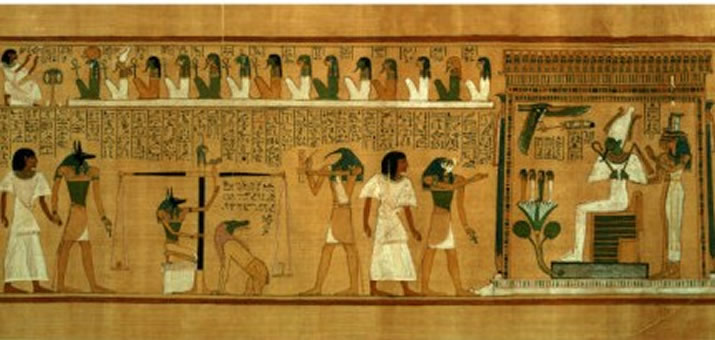HIST 213 History of the Ancient Near East
The Weighing of the Heart Ceremony (Papyrus Berlin 228)
The ancient Egyptians believed that, when they died, they would be judged on their behaviour during their lifetime before they could be granted a place in the Afterlife. This judgement ceremony was called "Weighing of the Heart" and was recorded in Chapter 125 of the funerar text known as the "Book of the Dead".
It is not just technology, however, but the questions being asked that have changed: cultural diversity, the relation of centre to periphery, social relations, power structures, economic systems, ecological change and gender issues are only some of the most important recent concerns of historians and archaeologists. Such perspectives and goals inevitably reflect the thoughts and intellectual ‘fashions’ of our own time. The same texts, the same architecture, the same pots have been and will in the future be evaluated and understood in quite different ways that often say more about the society seeking such answers than about the ancient society itself. There are stories about the telling of stories, as any storyteller knows... it is important to remember that history is a continuing process of asking questions and finding answers, not a rigid sequence of dates and events.
-G. Leick, Mesopotamia: The Invention of the City xvii
The Course:
This broad survey investigates the development of the so-called “cradles of civilization,” Ancient Mesopotamia, Egypt, Anatolia, the Levant and Persia. At times the class will dip deeply into these cultures, using primary texts as well as archaeological and artistic evidence to better understand the political, religious, economic, military, social and artistic evolution of these closely associated cultures. We will focus on themes such as the development of kingship as a secular and sacred ruler, the ideology of Empire, the environment, and the fragility of the inter-connected network of resources that developed. The ultimate goal is to understand the inter-cultural milieu of the Ancient Near East and demonstrate how much Western civilization owes to these historical developments.

